Philadelphia, Pennsylvania guitarist Tyler Bussey may have cut his teeth playing in innovative emo acts like Strange Ranger and The World Is A Beautiful Place & I Am No Longer Afraid To Die, but his recently launched solo project, Thank You Thank You, is a genre-eschewing exercise in gentle sonics. Pulling from influences like Broken Social Scene and unearthed folk recordings, Thank You Thank You’s debut EP, NEXT TO NOTHING, defies expectation and exists in a fascinating, singular realm. Featuring guest appearances from members of Spirit Of The Beehive, Another Michael, and Hour, it’s one of the most intriguing releases of the year so far. Make sure to pick it up on Bandcamp today, courtesy of Oof Records.
Off the top, I really like the EP. I was super excited for it and it definitely is super unique and is not what I was expecting at all, but in a really good way.
Tyler Bussey: That’s interesting that it’s not what you were expecting. In what way?
It’s just more folky, and as someone who listens to a lot of Strange Ranger, I was expecting something that felt pretty emo and ‘90s. This almost had more of a soundtrack-like, cinematic feel to it.
TB: Oh, that’s cool! You have to understand, too, that I joined Strange Ranger really at the end of 2018, beginning of 2019. There’s been so many other musical interests and pursuits that have happened along the way.
Yeah, I kept seeing that when I was doing research for this that I feel like your résumé was, like, Strange Ranger, The World Is A Beautiful Place & I Am No Longer Afraid To Die, and a lot of other things. It seems like you’ve previously done a lot of other stuff in other genres, which is interesting. When listening to NEXT TO NOTHING, I was surprised by how folky and earthy and also, like, avant-poppy it felt. I’m curious how Thank You Thank You relates to the other work you’ve done with other projects, or also how you wouldn’t relate it.
TB: It’s neat you heard folk as a touchstone because I’ve definitely spent a lot of time listening to folk music in my life, especially in the past 10 years. I’ve gotten really interested in stuff like the Alan Lomax field recordings, the SOUTHERN JOURNEY compilations, and Library Of Congress field recordings and things that were indebted to that. I feel like even on the rock tip you have Bob Dylan or The Band or something, or, like, the Harry Smith folk anthology, that kind of folk music.
In terms of relating it to other projects, I guess the projects that people generally know me from… the EP itself is more a full-fledged version of my tastes. There’s bits and pieces of what I’m into in other things that I’ve done, because I’m involved, but I’d say this is more of a full rendering of what I want to hear.
I think it’s interesting you’d reference Library Of Congress field recordings.
TB: The songs that I’m writing are not folk songs, to me. That said, I do have a certain taste for earthiness and the natural ebb and flow of tempo that’s not to a click. Things that are more off-the-cuff and alive-feeling are very much up my alley, musically.
Yeah, definitely. I got that as well, listening to the record, which I thought was cool. I was reading your bio and I saw that you were pulling from a lot of bands like Broken Social Scene. I’m curious if there are any artists or eras that inspired Thank You Thank You. Even though, obviously, that comparison was drawn because you were working with a larger group, I also could hear traces of that early aughts sound.
TB: That’s cool. One of the things that I love about that band is the sense of whoever’s around and everyone having fun and getting together because they’re friends, first and foremost. I feel like bands sort of become this stock image of a frozen sort of thing, like “the band is this unit and it can’t ever encapsulate other people.” People think it’s, like, this hermetically sealed human environment.
I love the idea of a band being more of a nebulous, always-changing entity. At times, The World Is was like that too. It was more, “Well, this person should play with us because we like them and we get along well.” It’s more personal. Frankly, I think that’s a “process yielding results” sort of thing: when you hear people having a good time and there’s not a lot of pressure and they’re free to express themselves and be themselves, it doesn’t sound like a bunch of people forcing themselves to do one thing. It sounds like a bunch of people free to try a bunch of things. That’s definitely something I was trying to capture and make space for.
I hear that with this project for sure, and also with The World Is A Beautiful Place. I feel like they both have that inexplicable sound. They both do experimental pop music in their own way. This one for me was a lot more of a gentle take on that.
TB: I am really drawn in by quiet sounds. Not that I’m not also drawn in by really abrasive sounds, I love Drive Like Jehu and I love Fugazi and Hot Snakes, bands like that. I love aggressive music, but it’s nice when there’s an intimate, smaller sound because it draws you in. You have to lean in a little bit to see what’s going on and hopefully there’s a lot of detail tucked in there when that happens.
Yeah, definitely. I saw that members of Spirit Of The Beehive and Another Michael and some other cool bands played on this. I’m curious how collaboration relates back to you in this project.
TB: I guess the boring answer is that it’s one of those situations where you have to put yourself out there if you want to see something like this happen. You can write songs and record them by yourself and play all the instruments if that’s the sound you want, but if you want it to sound like you had a bunch of different people play on it, then it helps to have a bunch of different people play on it (laughs). That’s only going to happen if you recruit people or you tell your friends, “Hey, I wrote these songs. I would love it if you played on this.”
So I would say it speaks to my outgoingness and my willingness to ask people if they want to be involved with things I’m doing. Everybody that I asked was someone that I knew and that I hung out with and that I get on with really well. Everyone’s a buddy. I get a feeling when I listen to it the way that I would if I looked through a photo album of parties I’ve been to. For me, that’s the point of the record, to cultivate that feeling and that interaction.
Yeah, and you can hear that. Even though I was thinking of collaboration while I listened to it, it never sounds stiff. It has a very free-flowing, fun energy.
TB: I didn’t give people too much direction, I just let them do their thing. We tried a lot of different things, there wasn’t a strict approach.
Going back to shows: in a world with live music, how do you envision Thank You Thank You? Do you think this will stay a recording project or could you see it becoming a live project as well?
TB: It was a live project before the pandemic, but we’ll have to see where things go. I love playing shows, but I’m not in a rush to go on tour. I love playing locally, I love Philadelphia and I love playing shows here, so I’m looking forward to when that becomes viable again.
In terms of what people can expect, I kind of like the idea that people don’t know who’s going to play and don’t know how many people will be on stage. There’s no rules. I think that songs are really mutable, there’s no right or wrong way to play a song or right or wrong instrumentation or anything like that. There’s just endless ways and it’s just, “Is it good or not?” So I’m first and foremost interested in playing shows with people whose musicality is appealing to me on some level. If my friend plays the bassoon and is sick at it, I want them to play a show with me. If my friend is good at beatboxing, let’s do it (laughs). It might be awful, but that’s part of the fun.
I would pay to see a beatboxing and bassoon show.
TB: Right? That sounds like a great trio, guitar, beatboxing and bassoon. Have you ever even heard of that before?
I absolutely could not name another band that’s doing that.
TB: It would definitely keep me on my toes.
How have you been able to stay active with your projects during the pandemic? Is having a Tyler-centric project something that was in the works before COVID or is it a result of the isolation?
TB: It did take that isolation to force my hand in finally finishing the mixing and mastering process, and really putting the finishing touches on it. Strange Ranger had been planning on more touring behind Remembering the Rockets, and the whole past year has just been a huge setback for everybody in ways that we probably don’t even fully appreciate yet and won’t for a long time. Can I backtrack for a second?
Yeah, definitely!
TB: I want to challenge this notion of, like, “You have to get a project off the ground,” or whatever. It’s, like, I’ve been playing these songs for a while, I just hadn’t released them. Releasing them just is how anybody outside of Philly is ever going to hear them. That’s just one aspect of releasing music or being a musician or playing in a band. That aspect is rolling now in a way that it was not before, but for me, I try not to put too much stock in that.
That’s interesting. Do you have another project in the works?
TB: You mean, like, more songs?
Yeah!
TB: I’ve got a few songs that I’m going to put out later this year. I don’t feel a strong sense of a “strike while the iron’s hot” kind of feeling. The iron’s not hot! The music industry makes no sense right now. Like, we can’t even play shows, so I’m just glad people like this EP and I hope that they like the next record, whenever that happens. No rush.
I actually relate to that as a musician because I don’t tour, but I do put stuff out. I feel coming into stuff as a music journalist, you never really hear people just being happy that the music is out there. There’s always a press cycle attached.
TB: Yeah, well, I am! I’m 34, and this has been a long time coming. I don’t have a lot of the same feelings around, like, “Oh I better, like, keep the ball rolling, better seize on opportunities”… It’s more about just living your life.
Yeah, it rarely comes up in interviews, but that is definitely how I am as a musician as well. It’s really interesting to hear you also have that feeling with this out there.
TB: The single best part for me about making music is performing and meeting people, it’s such a special and beautiful thing. I love going to shows probably even more than playing shows, and I’ve been missing that a lot. In a sense, I’ve been putting off recording and releasing my own songs because I just wanted to play in bands and perform. I felt content with focusing on performing and touring, and I’ve been very fortunate. I’ve been able to go far and wide with it, but whatever happens is cool at this point. Especially after this year, don’t you feel like we’re just going to be so happy to play at all? If I could play one show and that was it for this cycle, I’d be psyched. And if I don’t play a show I’m still psyched because I didn’t even think there’d be shows for a long time!
Yeah, I totally hear you. Especially on missing going to shows more than playing them. It’s such a weird deficit to have.
TB: Yeah, the way I put it in a conversation with someone else recently is that it’s almost like being a kid. We’re not allowed to go to concerts. I feel like I’m not allowed to go to bars and I’m not allowed to go to shows, but simultaneously everyone’s not allowed to.
It feels like the entire world is, like, 15 right now.
TB: The whole world’s 15, but you could lean into it or you could be really despondent about it. I think, to be perfectly honest, it helped clarify for me that this isn’t something that I need to do out of a compulsion. If I’ve learned anything from this year, it’s that I don’t need to do this stuff. It’s that I get to do this stuff, and it’s awesome. I want to keep doing it because I want to, not because I have to.
So, on a non-pandemic note, I saw that you went to school for English. What book should people read while listening to NEXT TO NOTHING?
TB: Oh, boy. I would say that people should read the autobiography of Tori Spelling, STORI TELLING. It is stylized in a beautiful way. It rose to the top of the New York Times bestseller list for hardcover, nonfiction books. If you love storytelling in the form of song, you’re going to love storytelling in the form of the autobiography of Tori Spelling.
Fair enough (laughs)! Do you think storytelling was something you were doing with this project?
TB: To a degree. I’m not trying to write a short story every time I write a song, but I do think about that sort of thing. I think it’s cool to see the care that goes into lyrics. I would say “Heights” has a narrative arc: a beginning, a middle and an end.
I hadn’t listened through that lens. Could you break down the story arc in “Heights?”
TB: Sure! So there’s three verses in the song. The first verse sets the scene and the first line is “We got high together on the balcony.” The action is this person’s cracking this other person’s back on their first try. That’s it, that’s the first verse. You’ve got the setting, you’ve got a sense of these two individuals and their relationship.
The next verse, fog rolls in and the narrator feels sick and lies down and tries to eat some ice cream, but doesn’t feel any better. The final verse, we fast-forward in time and the narrator is looking at a coin that they bought with the other person at the gift shop at Crater Lake, and remembering them. That’s it, that’s the story. I tried to find ways in the song to make it more than just that.
I got the advance for your EP the same week that the Hollow Comet EP came out. It’s been interesting to watch members of Strange Ranger branch out with side projects. I’m wondering if that’s an intentional decision. Was there communication within the band, or was it just happenstance?
TB: I think it was just happenstance. Like I said before, one of the results of everybody being stuck at home with a ton of time on their hands is there’s more time for projects or records that were maybe lower priorities. But with Nathan’s project Cool Original, he’s been making records at a steady clip for a while. Isaac’s been putting stuff out for a while. There’s definitely been more time to spread it around musically when tours aren’t happening.
All of the Strange Ranger side projects, Cool Original included, feel weirdly compatible. Even though they’re all of you away from the band, if you put a Cool Original song, a Hollow Comet song, and a Thank You Thank You song on the same album, I feel like they would actually fit extremely well next to each other. Whether or not there’s actually communication within Strange Ranger about those projects, it looks like there is from an outsider’s perspective.
TB: That’s cool! I think that it makes sense to me that it would all hang together. In general, I’m friends with a lot of very musical people, so there’s always levels of influence and inspiration going on.
When you listen to those projects they fit together very nicely. It feels like they could be a really intentionally communicated thing within the band.
TB: I will tell you, it totally isn’t (laughs). Hollow Comet is very much Isaac’s thing. Cool Original is very much Nathan’s thing, and Fiona has a project that I think in the not-too-distant future will be releasing something. We’re friends and by virtue of spending a lot of time together and talking a lot about music, there’s going to be some degree of influence.
Well, you can hear the communication between all of you as musicians, even in subtle ways. That was one of the most fun things for me listening to the Thank You Thank You advance right after I heard the Hollow Comet record. It felt like looking through the same lens at a different image.
TB: I feel that! As a listener, I read the liner notes a lot. I’m a dork about finding connections between projects. I listen to and am really interested in a lot of collaborative musicians, like, jazz musicians and improvising musicians where they’ve been involved with a litany of ensembles, that sort of thing. It’s always fun to find out the personnel connections in records that you’re listening to, and to find out that there’s some kind of deep tissue connection going on that you sort of sense, but when you find out what it is it can enhance it even more.
You were mentioning jazz, and that was the weird thing that I first heard when I listened to NEXT TO NOTHING. Even though it does not sound like a jazz album at all, I really, like, immediately thought it had the energy of jazz.
TB: That’s amazing! You thought that?
I don’t know why because there’s nothing objectively jazzy about it. It feels very free-flowing in the same way as a lot of jazz that I really enjoy.
TB: I really wanted to have a bit of a live feel going on, and as much as possible try to preserve the feeling of musicians playing in a room together and the simultaneity of that and people reacting to each other in real time. Even just kind of leaving in stuff that wasn’t recorded perfectly because the vibe was right, or leaving in the mistakes, as opposed to trying to make a perfect pop record where every single hair was perfectly in place. I was much more trying to make something that felt like it happened.
That feeling was very much there.
TB: That’s sick. That’s what I was hoping for!
There’s moments that are inexplicable but very cool. How did you strive to accomplish that as a producer in the studio?
TB: I think that I just wanted to convey to anyone who’s there that they’re there for a reason and that they’re supposed to be there. To relax and be themselves. One of the things that’s beautiful about recording is you can just do it again. Mistakes are fine. So I think that I just wanted to create a creative zone where everybody felt comfortable and confident. That’s what I tried to do as best I could.
Also, frankly, sometimes I needed the coaching. Sometimes I was the one who was feeling meek or shy or not sure if what I was playing or singing was going to work. There were never any major issues because it was good people who felt comfortable and who felt free to play, and that’s what I was searching for from the outset.
I feel like the freedom really translates, which is awesome.
TB: I’m very happy to hear that.
What three songs should Merry-Go-Round Magazine listeners drop everything and listen to right now?
TB: “The Shredder” by Little Wings. An entire album is LANDWORK NO. 2 by Nathan Salsburg. Drive Like Jehu, “Luau.”
You can check out NEXT TO NOTHING on Bandcamp today, courtesy of Oof Records.


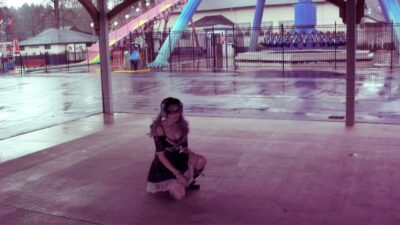

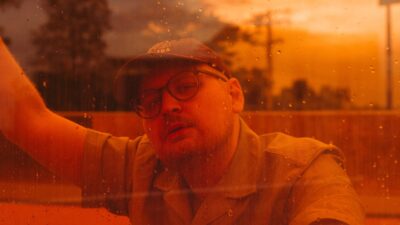
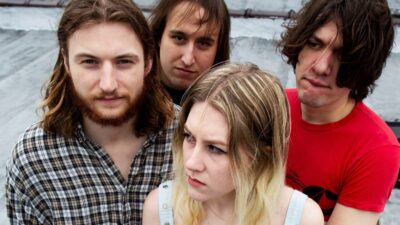

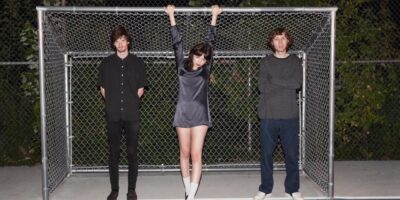

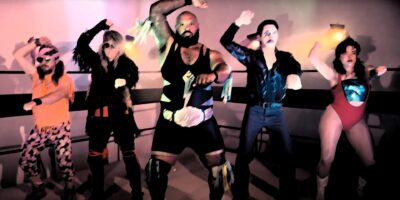
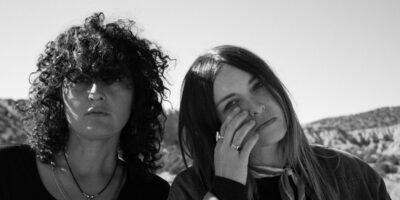





Comments